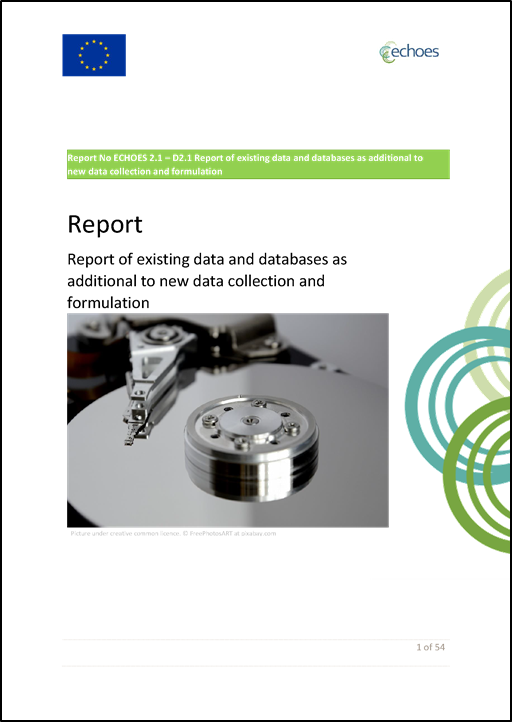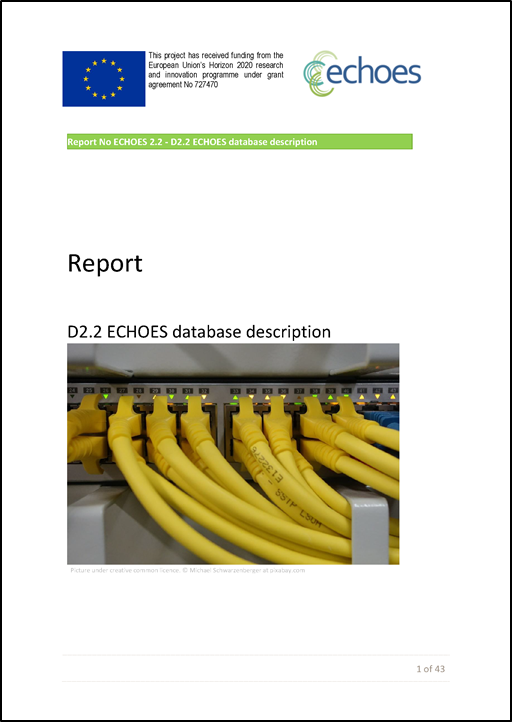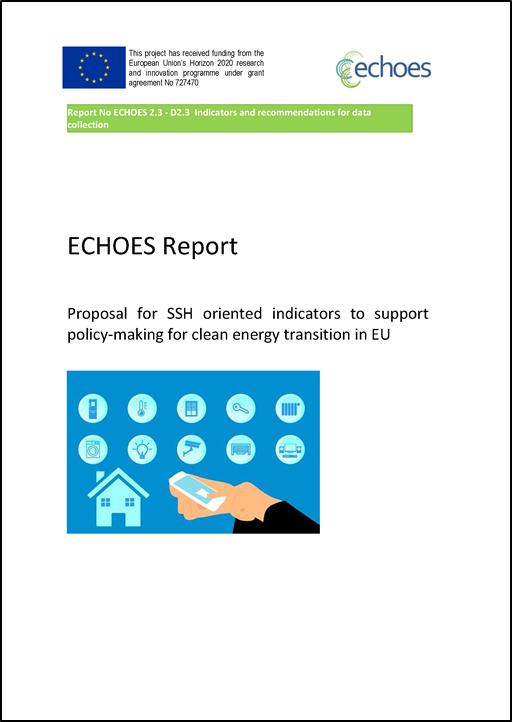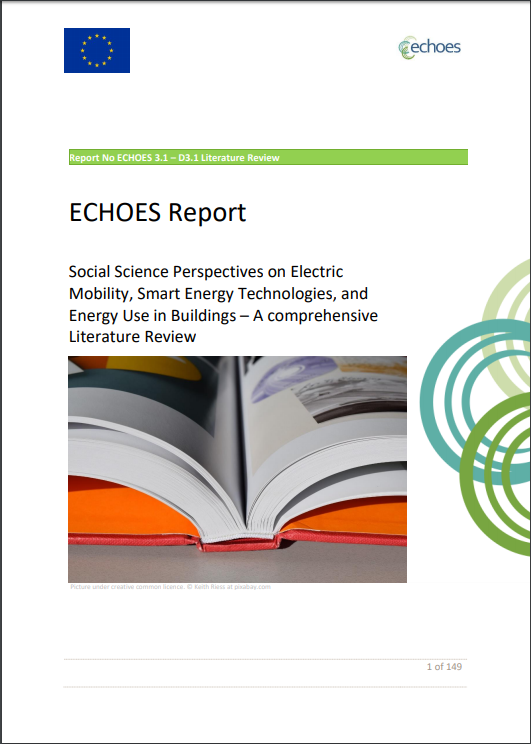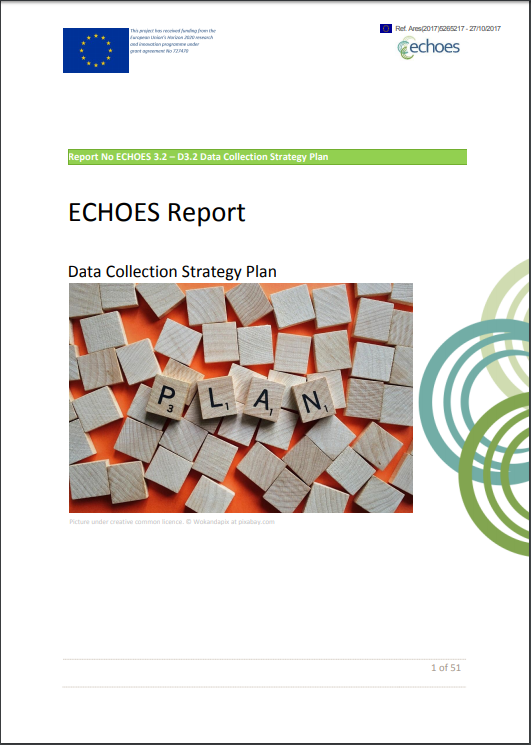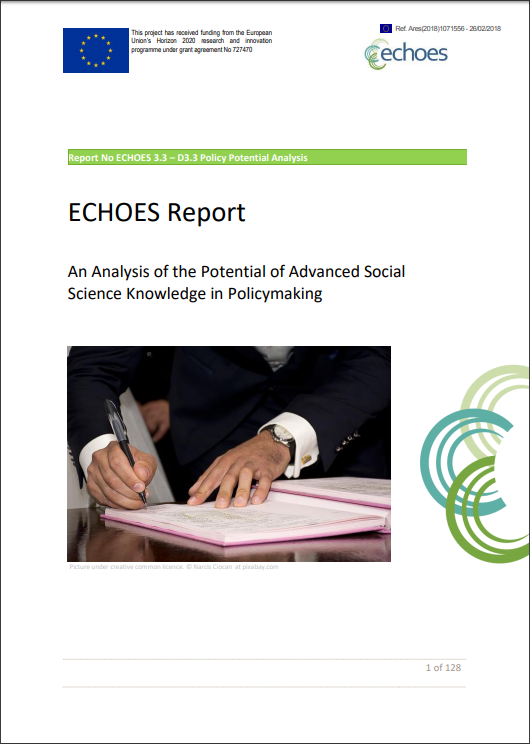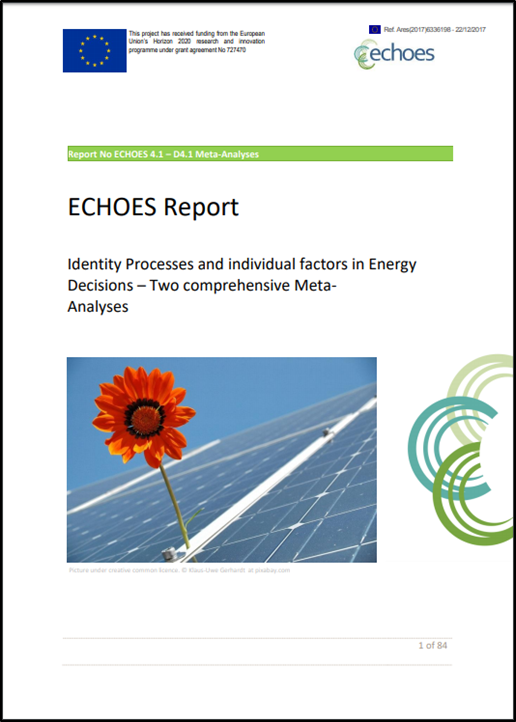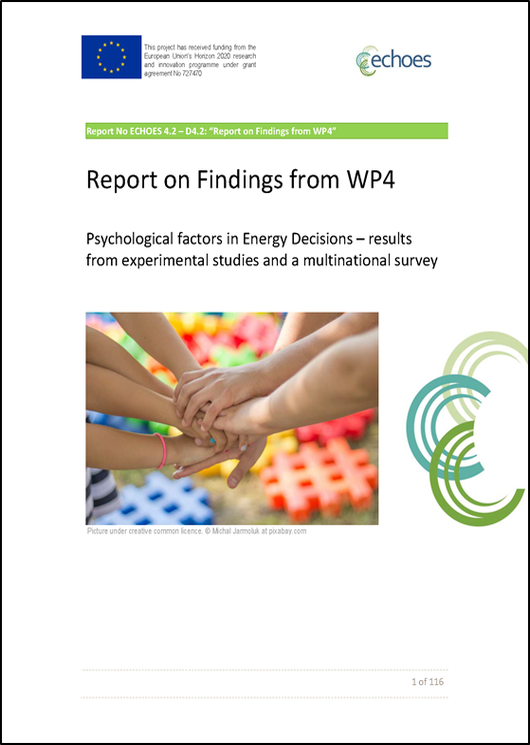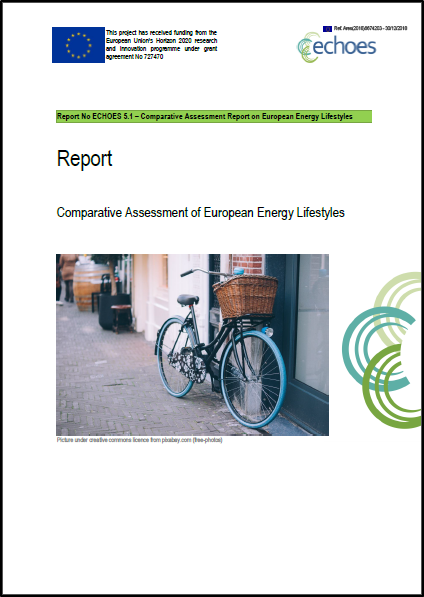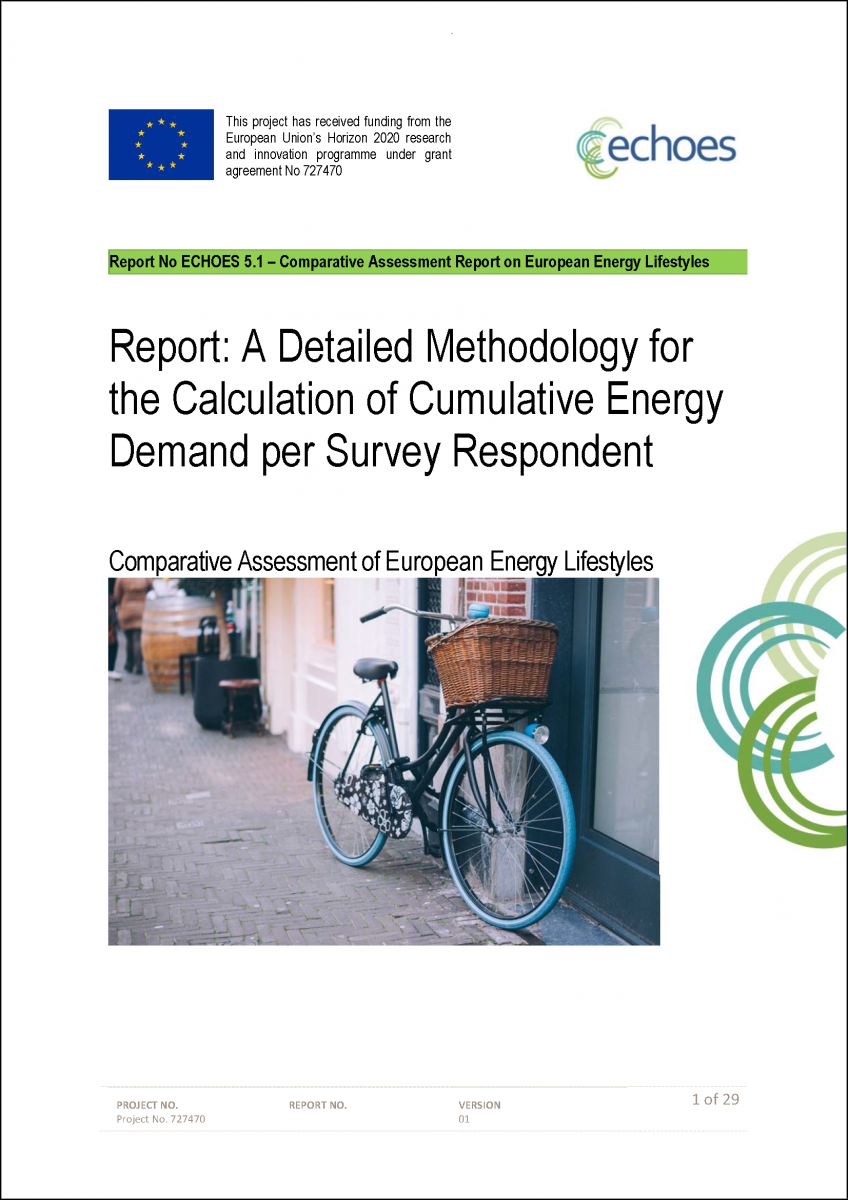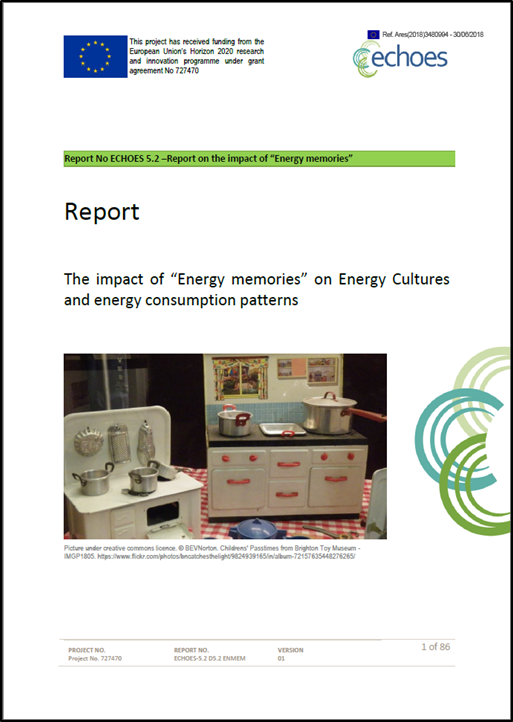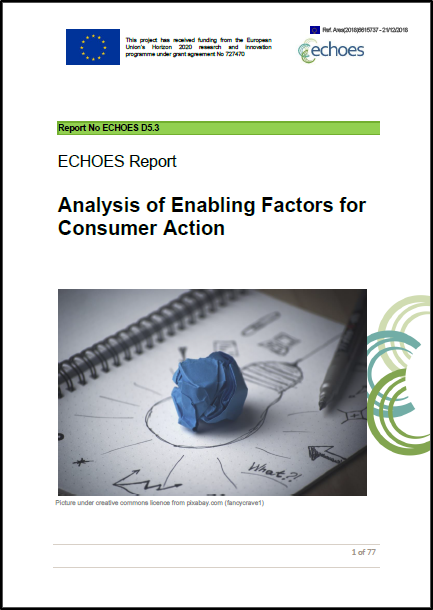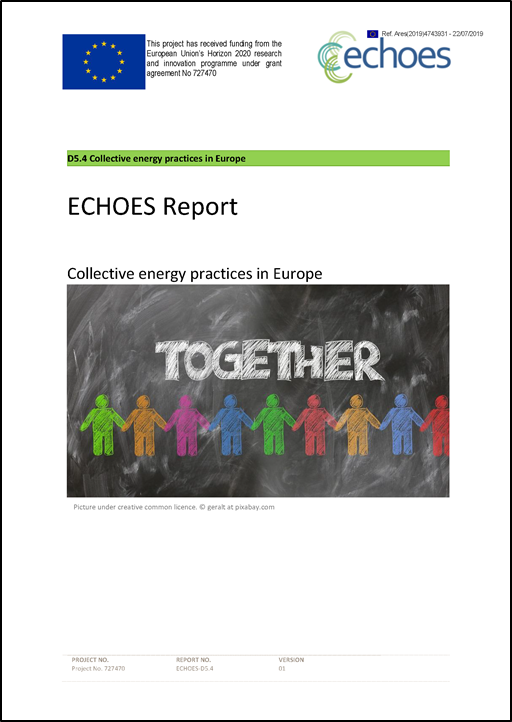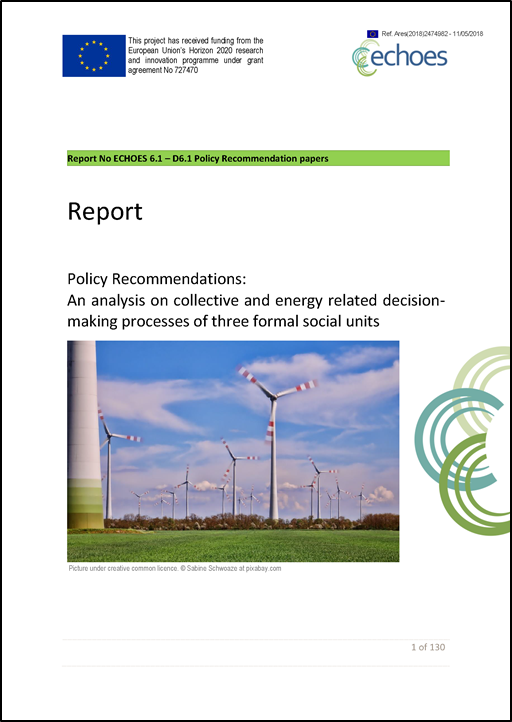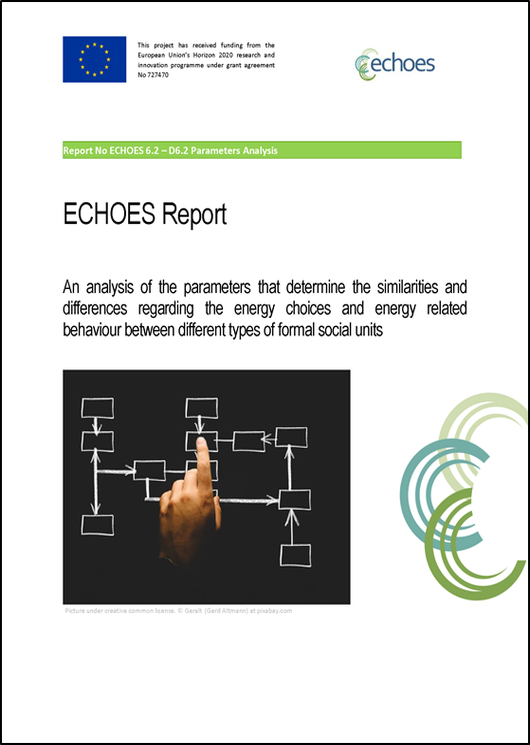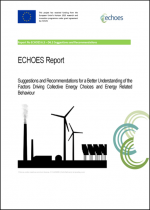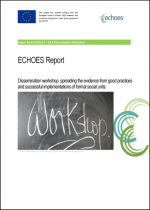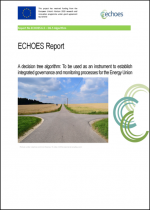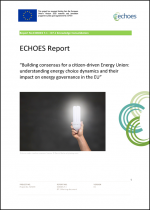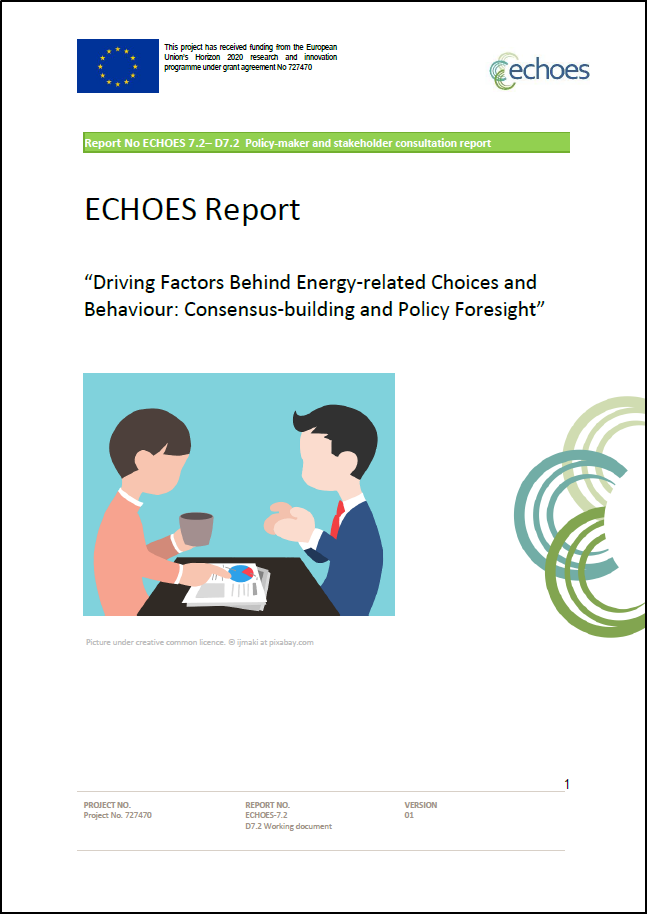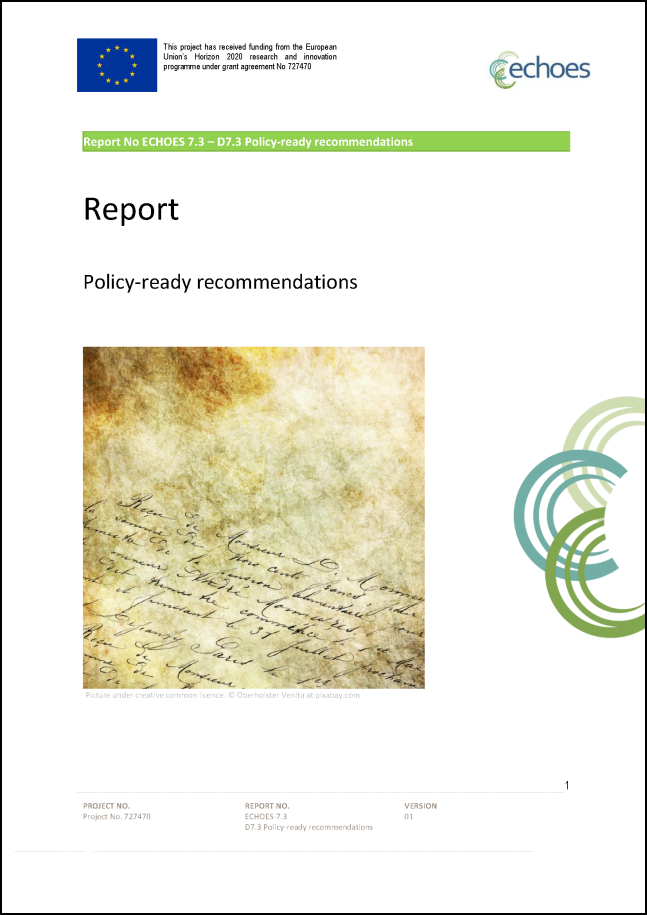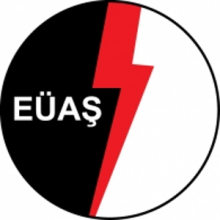Deliverables
WP2- Formulation of SSH database and SSH indicators
This work package is aimed at collecting, synthesizing and formulating relevant data and indicators related to individual and collective energy choices and behaviour. For this purpose, national and EU level databases will be taken as a starting point to evaluate existing gaps in quantitative data that would be needed in policy and decision-making bodies and in research communities. As a result of this work the following reports have been produced:
- D2.1 Data and database state of the art
- D2.2 ECHOES database description
- D2.3 Proposal for SSH oriented indicators to support policy-making for clean energy transition in EU [preliminary]
WP3- Policy potential assessment of the state-of-the-art / coordination of data collection activities
This work package prepares the conceptual ground for the empirical work to be conducted in the following packages. It aims at producing a unique synthesis of the policy potential provided by the current knowledge on drivers of energy choices. The following documents have been the result of this process:
- D3.1 Literature review on state-of-the-art for individual and group factors, cultural factors, institutional and policy factors
- D3.2 Data collection strategy plan
- D3.3 Potential and gaps analysis of leading EU and user group strategy documents
WP4- Individual energy choices in group contexts: a social identity perspective on sustainable energy transitions
This is an empirical work package aimed at assessing psycholgical mechanisms of individuals in groups, focusing on the distinctive role of collective thinking as a central determinant of human attitudes and behaviours concerning collective energy transitions.
- D4.1 Meta-analysis and definition of empirical procedures
- D4.2 Psychological factors in energy decisions [preliminary]
WP5- Collective behaviour driven by “energy cultures”: European energy lifestyles
This is also an empirical work package, focusing on the dimension of European energy cultures. The following issues are analysed in this package: the characteristics of European energy cultures and the relationship between energy cultures, lifestyles and energy practices.
- D5.1 Comparative assessment report on European energy lifestyles [preliminary]
- R5.1 Report: A Detailed Methodology for the Calculation of Cumulative Energy Demand per Survey Respondent [preliminary]
- D5.2 The impact of "Energy memories" on Energy Cultures and energy consumption patterns
- D5.3 Analysis of Enabling Factors for consumer action [preliminary]
- D5.4 Collective energy practices in Europe [preliminary]
 Energy memories is a new concept developed by ECHOES and describes energy relevant attitudes, beliefs and practices, developed from past key events that became part of the normative, practical and material culture.
Energy memories is a new concept developed by ECHOES and describes energy relevant attitudes, beliefs and practices, developed from past key events that became part of the normative, practical and material culture.
WP6- Formal social units as drivers behind collective decision-making
This work package aims at identifying the drivers of energy choices and energy related behaviour within different forms and levels of formal social units, including policy-makers, energy providers, industrial consumers and individual consumers engaged in joint contracts.
- D6.1 Policy recommendation papers to country-wise perspectives on the factors driving collective energy choices and energy-related behaviour
- D6.2 Report on parameters that determine the similarities and differences towards energy related behaviour between different levels and different types of the formal social units
- D6.3 Suggestions and recommendations for a better understanding of factors driving collective energy choices and energy related behaviour. [preliminary]
- D6.4 Dissemination workshop, spreading the evidence from good practices and successful implementations of formal social units. [preliminary]
- D6.5 A decision tree algorithm to be used as an instrument to establish integrated governance and monitoring processes for the Energy Union. [preliminary]
WP7- Knowledge Synthesis for the Energy Union and SET-Plan
This package integrates and synthesizes all previous results in the ECHOES project and consolidates them in a scientific report discussing the objectives, methods and results of the knowledge consolidation process, and how it embeds to the existing literature. A consensus between scientists, NGOs and policy-makers will be established about the decisive driving factors of energy related choices and then a strategy will be derived to integrate these findings in the European energy policy-making.
- D7.1 Building consensus for a citizen-driven Energy Union: understanding energy choices dynamics and their impact on energy governance in the EU. [preliminary]
- D7.2 Driving factors behind energy-related choices and behaviour: consensus building and policy foresight. [preliminary]
- D7.3 Policy-ready recommendations. [preliminary]

